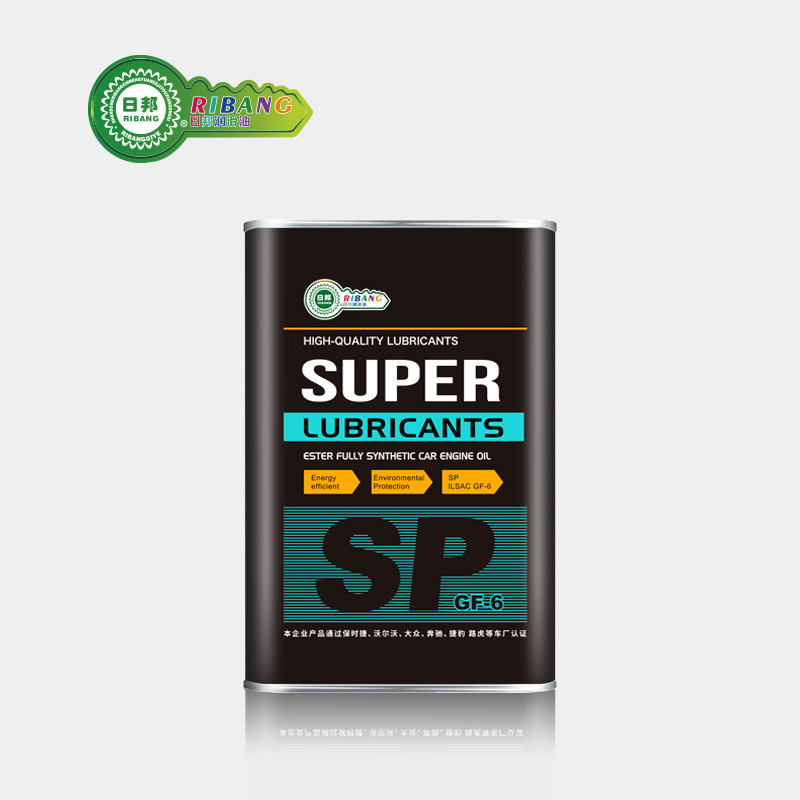What's the Difference Between Lubricating Oil and Engine Oil?
2024-12-17
When it comes to vehicle maintenance, one term that often pops up is *engine oil*. However, you might also hear the term *lubricating oil*, and the two may seem interchangeable at first. So, what's the real difference between lubricating oil and engine oil? Are they the same thing, or do they serve different purposes? Let's dive into the details to clarify these important components of vehicle care.
What is Lubricating Oil?
Lubricating oil is a broad category of oil designed to reduce friction and wear between moving parts of various machines, not just engines. This oil is used in almost every mechanical system, from industrial machinery and power tools to home appliances. It creates a thin film between metal surfaces, which helps prevent direct contact, reduces heat, and minimizes wear and tear. The primary role of lubricating oil is to prevent friction, which can lead to overheating, damage, and excessive wear of components.
Lubricating oil also performs additional functions, such as:
- Cooling: By absorbing heat from engine components or machinery and carrying it away to be dissipated.
- Cleaning: Lubricating oil picks up dirt and contaminants, which are then removed by filters.
- Sealing: The oil can help form seals to prevent leakage in certain systems.
- Corrosion Protection: It forms a protective layer on surfaces to prevent rust and corrosion.
Lubricating oils can vary in composition, with mineral oils, synthetic oils, and semi-synthetic oils being the most common types.
What is Engine Oil?
Engine oil, on the other hand, is a specific type of lubricating oil formulated for use in internal combustion engines. While engine oil serves the same basic purpose as lubricating oil—reducing friction and preventing wear—it is tailored to meet the high demands of an engine.
Engine oil is carefully designed to withstand the high temperatures and pressures found inside an engine. It needs to provide optimal lubrication under extreme conditions, while also helping to clean the engine, reduce engine knocking, and prevent carbon buildup. Depending on the type of engine (gasoline, diesel, or electric), the formulation of engine oil can vary significantly.
Key Differences Between Lubricating Oil and Engine Oil
1. Purpose: While lubricating oil can be used for a wide range of machines, engine oil is specifically designed for internal combustion engines.
2. Additives: Engine oils contain specific additives that are necessary for engine performance, such as detergents and dispersants that help clean the engine and prevent sludge buildup. Lubricating oils might have different additives, depending on the machinery they’re used for.
3. Viscosity: Engine oils are often rated by their viscosity grades (e.g., 5W-30, 10W-40), which are crucial for ensuring proper engine function in both cold and hot temperatures. While lubricating oils also have viscosity ratings, engine oils are more precisely engineered for the varied conditions within an engine.
4. Temperature Tolerance: Engine oils are designed to perform under extreme temperatures, whether in cold starts or in high heat during driving. Lubricating oils may not always be optimized for these conditions, depending on the machinery in use.
5. Cleaner Performance: Engine oils have additives that help them break down contaminants and carbon deposits that form inside the engine. Lubricating oils in general may not need to perform this cleaning function unless they're used in a high-performance environment.
Can You Use Lubricating Oil as Engine Oil?
It’s generally not recommended to use lubricating oil as a substitute for engine oil, especially in modern vehicles. Engine oils are specifically engineered with the right viscosity, additives, and detergents to keep engines running smoothly. While lubricating oils may work in some cases, they may lack the necessary additives to clean and protect the engine properly. This could lead to accelerated wear, reduced engine efficiency, and potentially serious damage over time.
Conclusion
In summary, while engine oil is a type of lubricating oil, not all lubricating oils are suitable for use in engines. Engine oil is specifically designed to handle the unique challenges and demands of internal combustion engines, while lubricating oil serves a broader range of functions in various types of machinery. When it comes to your car, always make sure to use the correct engine oil as recommended by your manufacturer to ensure the best performance and longevity of your engine.



